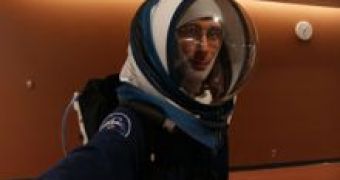Russia plans a mock mission to Mars in order to see the effects on human health of a long interplanetary journey inside what could only be described as a metal tube. The experiment is set to begin in the fourth quarter of 2007. The "flight" will be simulated on the premises of the Russian Academy of Sciences' Institute of Medical and Biological Research in northern Moscow and the crew will include five persons, male and female.
The "journey" to Mars will last 250 days and three crewmembers will spend up to 30 days on Mars' "surface". Throughout the "flight", the crew would be able to communicate with "mission control" via e-mail, but will enjoy video links for communications within the ship and with the "landing" module. The crew will have a five-day working week and rest on Saturday and Sundays. Neither smoking nor alcohol will be allowed. The mission could be extended to up to 700 days.
In order to test the reactions to stress, various emergencies are planned including the onsite malfunctioning of equipment and systems. During the experiment the volunteers will depend on limited supplies, including about 5 tons of food and oxygen and 3 tons of water. The crew will include a doctor who will treat illnesses and injuries. Volunteers will not be allowed to quit the experiment unless they develop a severe ailment of psychological stress.
The experiment, however, will not test the effects cosmic radiation would have during such a long trip.
The participation is not reserved only for Russian volunteers, the institute officials saying that they wish to have an international team. To qualify in the first round of selection, you would need to be aged between 25 and 50 years. According to the web site of Russia's Federal Space Agency, being a doctor, engineer, biologist or computation instrument specialist would win you extra points during the selection process.
NASA had been invited by Russian scientists to join in on the Mars mock mission, but the US space agency decided not to participate. Nonetheless, NASA spokeswoman Dolores Beasley said they are "very interested in the results".

 14 DAY TRIAL //
14 DAY TRIAL //